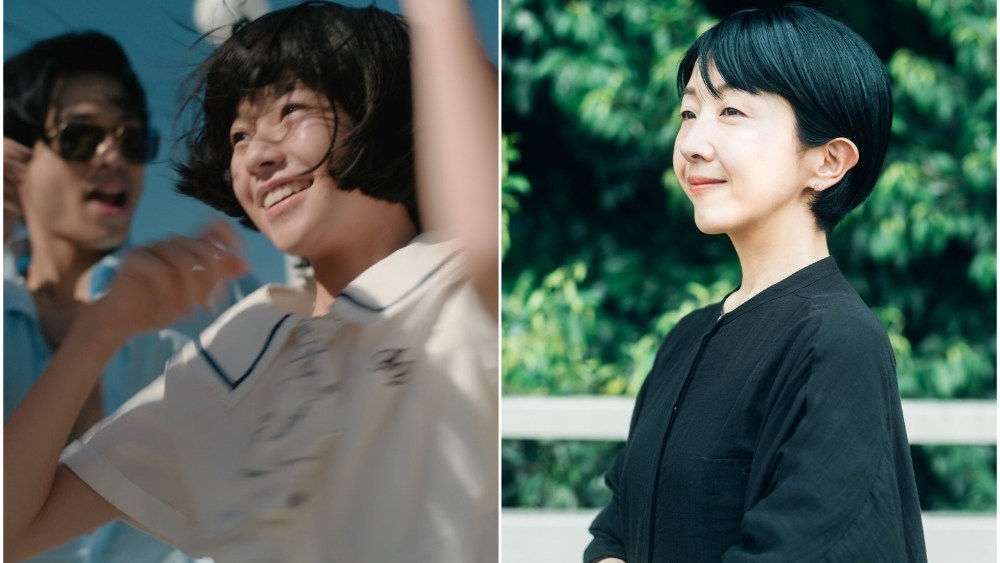Acclaimed Japanese filmmaker Chie Hayakawa's “Plan 75” won the digital camera D'Or at the Cannes Film Pageant, and he once again on Croisette with the rival title “Renoir”, an adult drama, an adult drama, throughout Japan's financial bubble in the late 1980s.
The film follows Fuki, an unusual and sophisticated 11-year-old woman who plays by newcomer Yui Suzuki, who has a tough summer in a tough summer while dealing with a final discomfort father and a stressed working mom. Solid choice Hikari Ishida and Lily Franky play key roles.
“Renoir” deeply attracted Haichuan's private experience of landing his father throughout his childhood. “I've been thinking about this story because I used to be a young man or a 20s,” Haichuan told choose. “But when I made this movie in my 20s, I targeted the extra targets at the kids and could be particularly frustrated – too dark.”
The director believes her current perspective brings valuable insights. “Now I am the same age as my father and father at that time. I even have two children, so I think how mother and father live, their ideas.
Hayakawa was specially selected to set this story in 1987 in Japan's financial bubble intervals, seeing similarities to the latest society. “Then, Japan's financial system is rising and rising. There is a lot of hope in the future, and we are full of worship and respect for Western culture,” she explained. “It's a consumption tradition. Everyone is consuming the whole, and the relationship between families is constantly weakening. We are always abandoning what is actually about us and what is actually about us.”
The film consists of symbolic parts that reflect the second part of this culture, as well as a repetition of Western portrayals purchased by the protagonist’s family – the title renoir. “You'll notice a little episode where the family bought the repeated description, which was pretending, but it reveals the Japanese's simulation of Western art. Whether it's pretending, they're happy with it,” Hayakawa said.
“Renoir” represents a significant development in Hayakawa’s approach to global cooperation. Together with Japan's Loaded Movies, Happinet Phantom Studios, Dongyu Membership and Kinofaction, the venture introduced collectively Singapore's Akanga Movie Asia, Arte France Cinema, Indonesia's KawanKawan Media, and Philippine manufacturing corporations Daluyong Studios, which beforehand co-produced Hayakawa's “Plan 75,” and Nathan Studios, together with “In the growth process, there is a good thing that I have advice from producers in France and Singapore,” said technical crew members from overseas. “For manufacturing, I have recorders and added operators that France works with in full photos in Japan.”
This kind of cross-cultural collaboration has proven to be valuable. “The best way they work may be completely different, and technically, I think the French voice approach is a very overdue stage. This is a great research alternative for Japanese crew members,” she said.
Working with baby actor Yui Suzuki, he has a lot of emotional weight and is seamless for the director. “This is my first time working with a baby actor, so I believe it can be very difficult. I wish she wanted a path to be cautious, but in fact, since she naturally walked a lot of paths, it turned out to be simple.” “I didn't actually explain how she simply said the conversation or did facial expressions – she did it naturally. My only path was about physical action.”
Lily Franky, a veteran actor who plays a key position in the film, introduces the film image of a novel. “He is great,” Haichuan said. “He's exactly the special person I think of when writing the script. I always imagined him as a dad. His eyes were fixed as directors, so even simply standing and saying something, or sitting in a chair without conversation, it turned into a cinema.”
With “Plan 75” and “Renoir,” Hayakawa admits that she has attracted characters who navigate segregation within the society. When asked to consciously construct the theme trilogy, she would show: “To some extent, I care a lot about human solidarity, so I might stick to this topic.”
As for her position in the rise of Japanese cinemas on the global stage, Haikawa is optimistic. “A lot of new Japanese administrators have been on the rise over the last two or three years, so I have a very optimistic feeling about Japanese cinemas. We are very aware of the issues in the Japanese trade, so we are trying to modify them bit by bit.”
She believes her joint production method has undoubtedly influenced different Japanese filmmakers. “There aren't many Japanese administrators working with global co-production, and it's almost impossible for Japanese filmmakers to try and make movies in such a way. I feel my case may be a good situation for working with global manufacturing and focusing on the world market. It provides individuals with inspiration for the simple way to make movies simply specialize in the Japanese market.”

